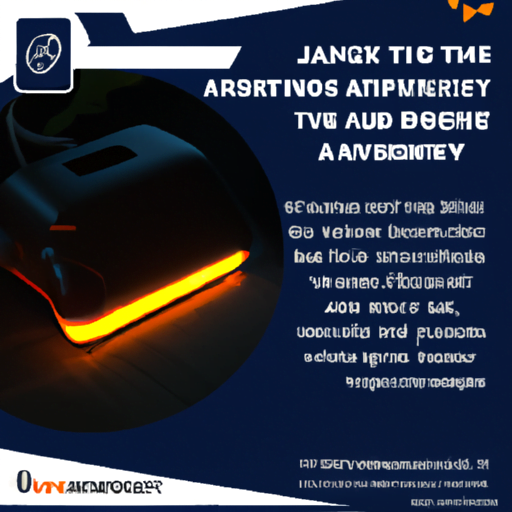Have you ever wondered if it’s possible to live off a Jackery? You know, those portable power stations that claim to provide all the electricity you need? Well, I was curious too, so I did a bit of research and found some interesting information. In this article, we’re going to dive into the world of off-grid living and explore whether or not a Jackery can truly sustain your power needs.
Living off the grid has become increasingly popular in recent years, as more people seek to reduce their reliance on traditional power sources and embrace a more sustainable lifestyle. And the Jackery has emerged as one of the top contenders in the portable power market. These compact devices are designed to store and generate electricity, making them ideal for camping trips, RV living, or even as a backup power source for your home.
But can a Jackery truly provide enough power for all your needs? Well, it depends on your specific requirements. While a Jackery can certainly power small appliances like laptops, smartphones, and LED lights, it may struggle to handle more energy-intensive devices like refrigerators or air conditioners. In addition, the capacity of the Jackery (measured in watt-hours) will determine how long it can provide power without needing to be recharged.
So, while living off a Jackery is definitely possible, it’s important to understand its limitations and plan accordingly. In our upcoming article, we’ll take a closer look at the different models of Jackery available, their capacities, and how to optimize your usage to get the most out of your portable power station. Stay tuned to learn more!

Off Grid Living
Benefits of Off Grid Living
Living off the grid can offer numerous benefits for those seeking a more independent and sustainable lifestyle. One of the key advantages is the freedom it provides from utility companies and their monthly bills. By harnessing renewable energy sources, such as solar power or wind turbines, individuals can generate their own electricity and reduce their dependence on traditional power sources.
In addition to financial savings, off grid living promotes self-sufficiency and resilience. By being less reliant on external resources, individuals can develop important skills such as water collection, sustainable agriculture, and energy conservation. This increased self-reliance can enhance one’s sense of empowerment and reduce vulnerability to external factors such as power outages or price fluctuations.
Off grid living also provides the opportunity to live in remote and natural environments. Away from the noise and pollution of urban centers, individuals can embrace a simpler and more sustainable way of life. This connection with nature and the ability to create a more eco-friendly living space are powerful motivators for many people considering off grid living.
Challenges of Off Grid Living
However, off grid living is not without its challenges. One of the primary obstacles is the initial cost of setting up an off grid system. Investing in solar panels, wind turbines, batteries, and other equipment can require a significant upfront investment. Additionally, it may take several years to recoup these costs through energy savings.
Another challenge is the limited power capacity of off grid systems. Depending on the size and capacity of the system, it may not be able to power high-energy appliances such as air conditioners, electric heating systems, or large kitchen appliances. This limitation requires individuals to make intentional choices about their energy consumption and prioritize essential appliances.
Another consideration is the seasonality and weather-dependent nature of renewable energy sources. Solar panels, for example, require sunlight to generate electricity. During cloudy days or long winter nights, the energy production may be limited. It is important for individuals living off the grid to plan for these fluctuations and have alternative power sources or backup generators to rely on.
Sustainable Energy Sources for Off Grid Living
When it comes to off grid living, the energy source plays a crucial role. Sustainable and renewable sources are key components of a successful off grid system. Solar power is one of the most popular options, harnessing the sun’s energy to generate electricity. By installing solar panels and connecting them to a battery storage system, individuals can store excess energy for use during low-production periods.
Another renewable energy source is wind power. Wind turbines capture the kinetic energy from the wind and convert it into electricity. However, wind power requires specific wind conditions and may not be suitable for all locations. For those living in windy areas, wind turbines can be a reliable and efficient source of renewable energy.
Hydropower is another option for off grid living, especially for those living near flowing water sources such as rivers or small streams. By using a turbine or water wheel, individuals can generate electricity from the kinetic energy of moving water. Hydropower can be a consistent and efficient source of energy, as long as there is a reliable water source available.
Geothermal energy is another viable option for off grid living, particularly for those in areas with high geothermal activity. By using heat pumps, individuals can tap into the earth’s natural heat and convert it into usable energy. Geothermal energy is a highly efficient and sustainable source of power, but its feasibility depends on the geographical location.
In conclusion, off grid living offers numerous benefits, including financial savings, self-sufficiency, and a closer connection to nature. However, it also poses challenges such as upfront costs, limited power capacity, and dependence on weather conditions for renewable energy production. By utilizing sustainable energy sources such as solar power, wind power, hydropower, or geothermal energy, individuals can maximize their off grid living experience and embrace a more sustainable and self-sufficient lifestyle.




